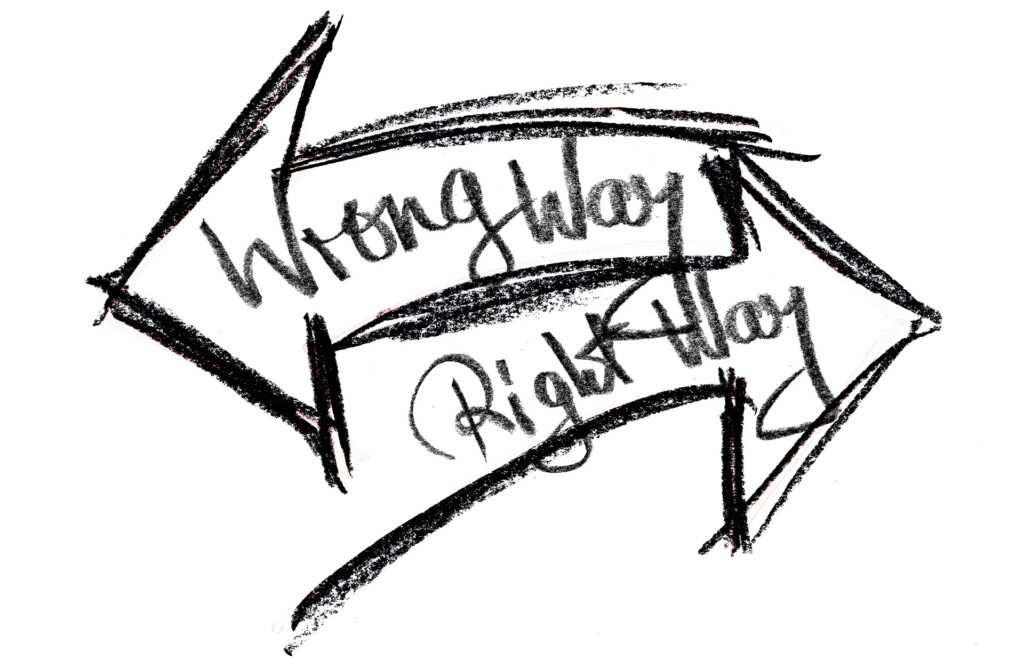CHECK YOURSELF BEFORE YOU WRECK YOURSELF: ETHICS SELF ASSESSMENT
By: Dee Kring, CAE, CMP
As we near the end of the year and prepare for the next, performance evaluations are on the calendars for many of us. It is a time to reflect on the year’s job performance and set goals for the coming year. This is also a great time for personal self-assessment. How are we doing health-wise? Are our finances in order? Do we practice work-life balance? Do we behave ethically and treat others as we would like to be treated? In other words, this is a great time to check ourselves before we wreck ourselves!
Recently, in preparation for renewing my professional certification, I signed up for a webinar on the required topic of Ethics. I’m of the mindset that you can’t teach someone to be ethical because ethics stems from an individual’s fundamental morals and values. As someone who considers herself an ethical person, I put my headset on and logged in to Rigsbee Research website for its webinar “The Everyday Ethicist™ for Association Professionals” fully intending to multi-task while running through the content in order to satisfy my minimum requirement. However, the speaker quickly got my attention when she said the majority of society identify as “rationalizers” when it comes to ethics. Could that possibly be me, after all, didn’t I just rationalize not fully listening?
The presenter, Amanda “Jo” Erven, CPA, CIA, CFE, author of Becoming The Everyday Ethicist™ talks about 3 basic character choices: The Big Me, The Rationalizer, and The Everyday Ethicist™. Here’s what I learned about each:
The Big Me
David Brooks introduces The Big Me character in his book The Road to Character. Mr. Brooks says that The Big Me is a culture shift from humility to one that encourages people to see themselves as the center of the universe. Described as always putting themselves first with no regard for others, those with The Big Me character have no regard for right and wrong, and “lack the ability to articulate and engage in moral reasoning”. We can see The Big Me not only in individuals but in the businesses they lead. Ms. Erven provided examples of The Big Me in industries such as financial services, automotive and big pharma – describing them as chasing profits over purpose.
I think it’s safe to assume that my reading audience does not fall into this The Big Me category, but if any of us remotely identify, it’s most definitely time to “check yourself before you wreck yourself!”
The Rationalizer
While most of us cannot identify with The Big Me character, we may not be as ethical as we think. Ms. Erven challenges that the majority of society identifies as Ethical Rationalizers. Often this occurs due to blind spots such as unconscious bias (ingrained attitudes or stereotypes), group think (everyone does it), influence (my boss told me to do it) and money (I’m owed it).
Consider this scenario: After shopping for your groceries and loading them into your vehicle, you take a moment to review your receipt. The cashier mistakenly missed scanning your $25 holiday ham!
The Big Me character undoubtedly thinks “Score! Today is my lucky day!” as they drive out of the parking lot without an ounce of remorse.
The rest of us will go back inside, ham and receipt in hand, to settle the bill.
Now consider the same scenario, but instead of a ham, it’s a pack of gum or an even less expensive item. Would the value of the item impact our actions? If so, why? Would we rationalize our actions by thinking “It’s only a couple of bucks? It helps make up for all those times this store has overcharged me”.
Perhaps our rationalization isn’t intentional, but we must “check ourselves before we wreck ourselves” and become more intentional with our actions.
Ms. Erven says “it’s time to be a part of a moral revolution” and strive to be ethical every day in every way.
The Everyday Ethicist™
Many of us like to think we fall into The Everyday Ethicist™ category, but do we? There are no gray areas with The Everyday Ethicist™. They will always do what is right, no matter how small the matter may seem.
Let’s take a moment to consider the top 5 Descriptors of an Everyday Ethicist™:
- A model for ethical behavior and inspires others to do likewise
- Doesn’t overcommit or exaggerate (a promise is a promise)
- Is never a lapdog (always speak the truth, even if your voice shakes)
- Takes ownership of decisions
- Focuses on eulogy virtues as much as (or more than) resume virtues – courage, honesty, humility, bravery, integrity, etc.
As we read about the three character choices: The Big Me, The Rationalizer, and The Everyday Ethicist™, which do you most identify with?
If our self-assessments find us falling short, whether it’s in job performance, personal finances or ethics, it only means we have identified areas in which we can improve. Self-assessment is a valuable tool, but only if we are completely honest with ourselves can we benefit and grow.
As we reflect on the year behind us and prepare to set intentions for the next, let us not forget to include our Ethics in our self-assessment exercise and heed the advice: “Check Yourself Before You Wreck Yourself”!





